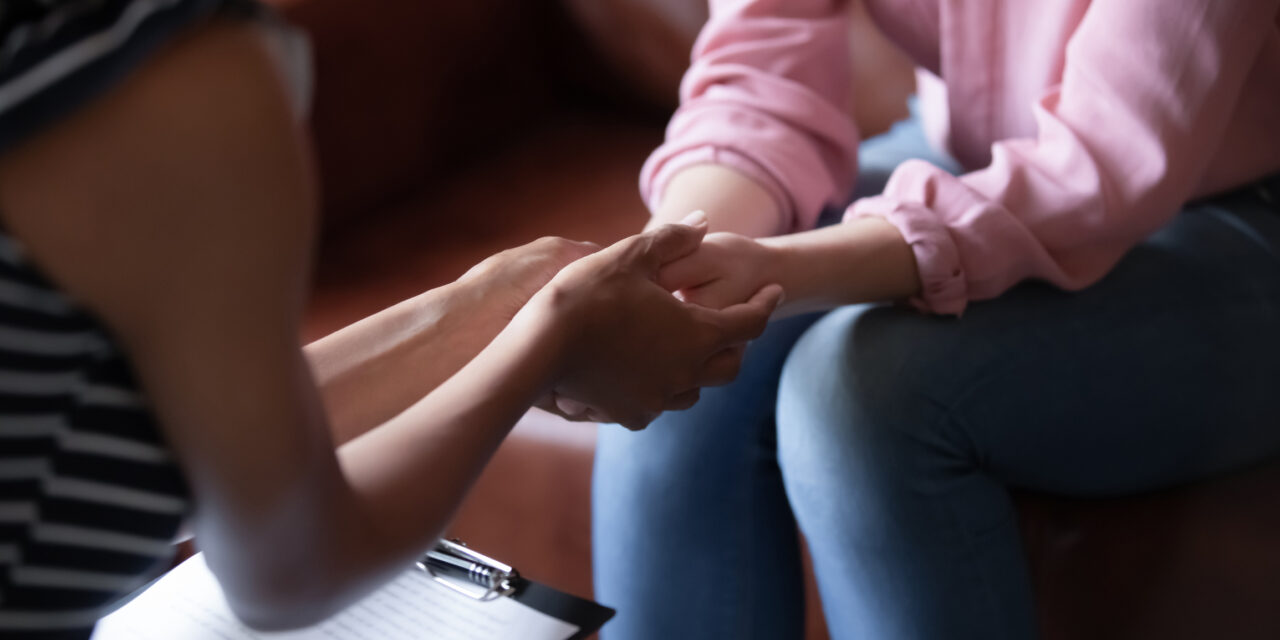Practical Steps for Church Leaders to Minister to People in Crisis
Pastors and church leaders have the daunting task of ministering to congregants who still suffer the aftershocks of COVID. This story is all too common, but when godly people unite to serve, churches experience transformation change — one person at a time. | By Dr. Pamela Prince Pyle
It was a lazy Saturday morning and therefore with coffee in hand, I sat curled up on the couch. My cell phone rang, and I was surprised to see a friend’s daughter calling from the West Coast. It was 6 a.m. her time, and I picked up quickly with a little catch in my heart as I knew she wouldn’t call this early without a reason. I was right, she was very concerned about her parents and hadn’t slept well. She knew I would be awake.
Her parents, Frank and Sharon, like so many others, had been victims of COVID in 2020. Though physically recovered from their brush with death, the aftershock had spread to their marriage, their relationships, and their mental health through severe PTSD, depression, anxiety, and a suicide attempt. This was the reason for her call.
COVID changed everything
Prior to COVID, Frank and Sharon lived a normal quiet life. While no marriage is perfect, it seemed they had a pretty good one. Drastic changes in life were about to occur, and neither was equipped. Frank was diagnosed with COVID and required immediate hospitalization. His respiratory status declined rapidly and would require ventilatory support within 12 hours of admission. While gasping for air, Frank said, “I don’t want to die.” The medical team sedated him, then placed him on a ventilator.
Sleep, blessed sleep, or was it?
Two days after Frank’s admission, Sharon began to feel sick; she also tested positive for COVID. She quarantined herself at home for 14 days. The support system she would typically have was gone, and she was alone.
Days turned to weeks. Then, the doctor finally delivered good news: Frank was doing better. Sharon shouted for joy, but the next words she heard tempered her response. His body had become “severely weak,” and he would need to stay in the hospital for weeks before it would be safe to bring him home.
Sharon’s emotions ran high as she thought to herself, “He will survive, but will I?” She was suffering from her isolation. Life out there will never feel safe again.
The “Second Pandemic”
Weeks later, Frank and Sharon were reunited. Happy ending, right?
Unfortunately, no. They each experienced a trauma that profoundly affected their lives. While physical healing had occurred, the greater battle was yet to come. It was their Second Pandemic.
Unfortunately, stories like Frank and Sharon’s are more common than not. However, in this couple’s anguish, they were also living in shame.
Looking at themselves, they asked, “Why aren’t we feeling better about life? What’s wrong with us?” Then, turning to each other, they wondered, “What’s wrong with you?”
The shame, fear, anxiety, and stress they felt turned into accusations; someone was to blame. Rather than directing their frustration toward the virus, they turned on each other ⎯ and on themselves. “We need to divorce,” someone said. “I want to take my life. I can’t live like this,” someone else said.
The Long Road to Recovery
The road to recovery can be long and arduous, and it requires community.
Frank and Sharon eventually pulled through, mainly because they had help. The impact of COVID on the individuals in your church will be as unique as the individuals themselves. A survey to identify common themes will help church leaders individualize church-centric activities so they can meet the specific needs of their parishoners.
Isolation can exacerbate problems because people recovering from COVID may feel exhausted, overwhelmed, and ill-prepared to fight for their health, especially if recovery requires time. Developing an outreach with regular phone calls or visits; both provide purpose and a sense of living in community while in the midst of suffering. This is the Acts 2 Church we desire to see.
It can be difficult to manufacture hope when you can’t see past your pain and fears, which is why the church must step in. Recovery IS possible.
Hope can empower people to heal ⎯ and even thrive ⎯ as they learn to cope with their suffering.
6 Ways Church Leaders Can Minister to People in Crisis
I have spent years caring for dying patients, and I have discovered six practical things you can do to minister to people, like Frank and Sharon, as they struggle with the aftershocks of COVID.
1. Encourage people to look to their faith tradition and find hope.
If faith has not been part of their lexicon, invite them to look to creation itself and consider God’s character. As a member of the Western Cherokee tribe, I know that my ancestors sought spiritual answers from their physical world. Romans 1:20 says that God’s “invisible attributes, that is his eternal power an divine nature, have been clearly seen since the creation of the world being understood through what he has made” (CSB).
2. Encourage them to make four lists.
First, ask them to write down all the bad things they have experienced because of COVID.
Second, ask them to list all the things that could happen to them.
Third, ask them to write down all the good things that have happened as a result of their illness.
Fourth, ask them to list all the positive things that could happen because they persevered through COVID.
Then, encourage them to compare all four lists, focusing on the positive outcomes. People in crisis need to see their own resilience. They need to acknowledge their own courage in the face of hardship. As Romans 5:3-4 says, “we know that affliction produces endurance, endurance produces proven character, and proven character produces hope” (CSB).
Invite people to consider ways they can thrive, even while they are dealing with the lingering effects of COVID.
One last note: Do not simply give people who are recovering from COVID a pep talk. Help them persevere. Come alongside and provide practical assistance. Set up meal trains if necessary. Urge church members to check in so they don’t feel isolated.
3. Let people know that their season of suffering has an ending date.
Hurting people tend to see only their pain. They can’t think about tomorrow because today requires every ounce of strength they have. Help people know that the crisis won’t last forever. In the meantime, assure them that the church is there for the long haul; members of the congregation will help them through the various stages of recovery.
In 2 Corinthians 4:17, Paul urged Christians to consider their “momentary light affliction” which was “producing for [them] an absolutely incomparable eternal weight of glory” (CS). By helping people gain a different perspective, they learn to weather the current storm and develop the resilience they need for future struggles.
4. Encourage people not to make long-term decisions while they are in the midst of short-term suffering.
Trauma can trigger a fight, flight, or freeze response. People trying to recover from the aftershocks of COVID may be tempted to make knee-jerk decisions that they believe will alleviate or ease the pain. In Frank and Sharon’s case, the immediate “solution” was either divorce or suicide, and of course, neither reaction was an appropriate response to the debilitating stress they were feeling.
Sometimes, people in crisis feel emotionally or mentally paralyzed. They need guidance as they try to manage their affairs. Family members and wise counselors can be a tremendous help.
Encourage your people to pray and wait for God’s leading. Philippians 4:6-7 says, “Don’t worry about anything, but in everything, through prayer and petition with thanksgiving, present your requests to God. And the peace of God, which surpasses all understanding, will guard your hearts and minds in Christ Jesus” (CSB).
Additionally, the church can ease the burden of decision-making by offering to take care of less pressing, albeit ongoing, tasks, like mowing the lawn, shopping for groceries, or driving the person to the doctor. By sharing the burden, you can free overwhelmed individuals to focus on their recovery.
5. Remind people that they are not alone in their suffering and shame.
Recent studies, reveal severe emotional stress in approximately 30% of COVID survivors. To make matters worse, patients often feel shame because they could not fully safeguard themselves from the sickness and its aftershocks. They feel weak and defeated.
Psalm 34:4-5 says, “I sought the LORD, and he answered me and rescued me from all my fears. Those who look to him are radiant with joy; their faces will never be ashamed” (CSB).
Remind your people that they have no reason to feel shame for contracting COVID or for encountering subsequent difficulty as a result of their sickness. Shame augments their pain and leads to more isolation, which WORSENS the problem.
Encourage people to share their feelings honestly. The more authentic they are, the more freedom they will find as they begin to heal, physically, mentally, and emotionally.
6. Encourage people to seek professional help.
Time is a sick person’s friend only if they feel better than they did yesterday. People in crisis often need to seek professional help to identify the source of their anxiety, anger, and fear.
Sick people need prayer, and you should continue to pray earnestly for and with them, but know your limits. Compile a list of reputable therapists that you can recommend. Offer a listening ear and a willing hand, then encourage the person to talk to trained counselor.
Recovering from the “Second Pandemic”
Frank and Sharon took their first step towards healing from the Second Pandemic when they increased their “situational awareness.” In other words, they assessed their circumstances, talked to a trusted advisor, and followed a specific plan.
You probably have people in your church who have survived COVID but who are still struggling. They may not understand the long-lasting impact that COVID can have on emotions or the stress it can create in relationships. They need to know that they are not alone. You can help them put on a “mantle of hope,” even if they don’t feel like it. By offering practical assistance, guidance, and empathy, you can help them move towards wholeness.
If you need additional help as you minister to people recovering from the aftershocks of COVID, consider these valuable resources:
- https://www.nimh.nih.gov/health/topics/post-traumatic-stress-disorder-ptsd/
- https://www.nimh.nih.gov/get-involved/education-awareness/shareable-resources-on-coping-with-covid-19
In many ways, the pandemic robbed people of their life. You can help them reclaim their hope. Life is short, and God means people to live it to the fullest.
Be sure to check out Dr. Pamela Prince Pyle’s book, A Good Death: Learning to Live Like You Were Dying.






